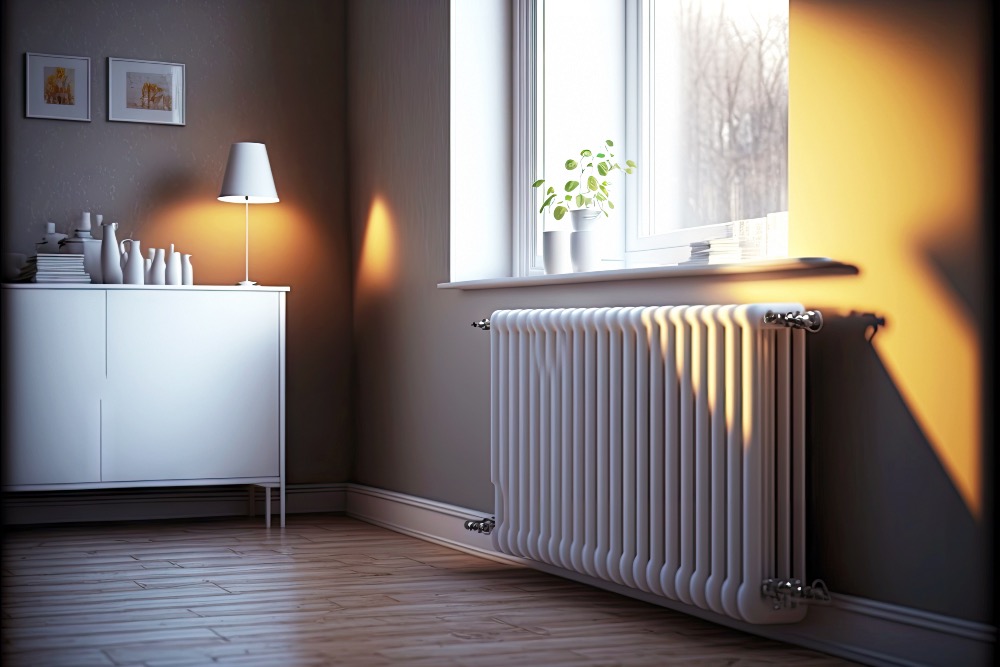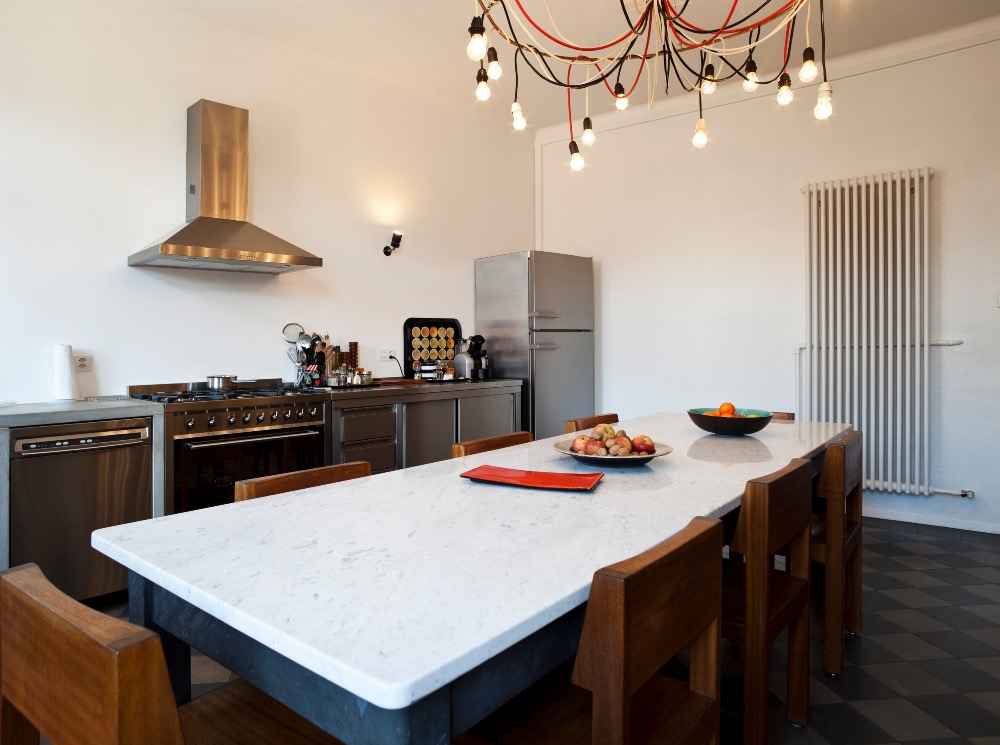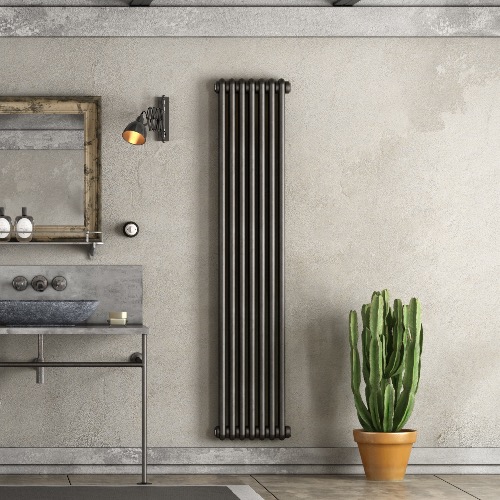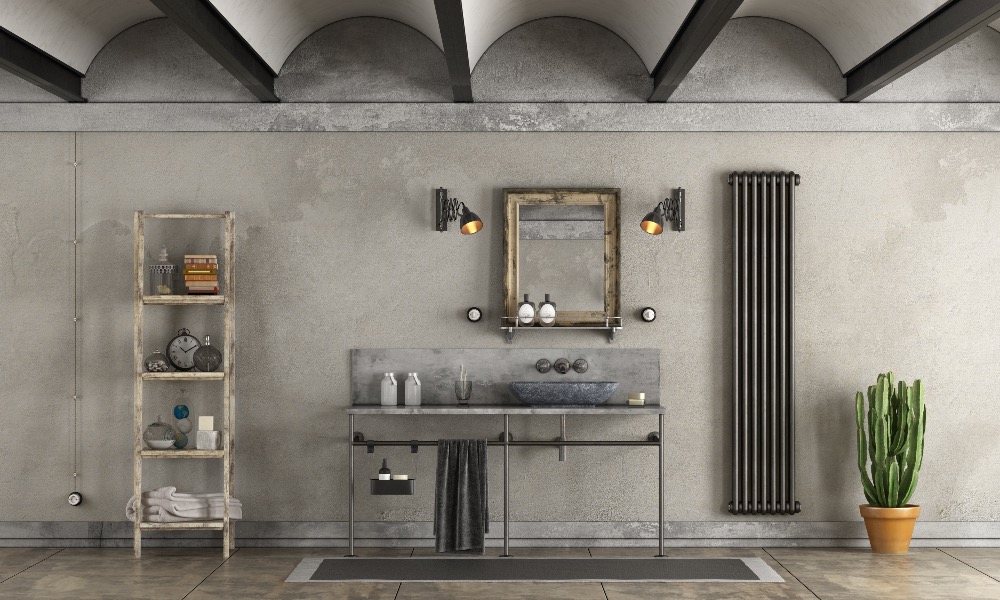Selecting the ideal radiator for your home can appear to be a challenge. Given the extensive range of models and sizes on offer, it's quite common to feel a bit overwhelmed. However, there's no need to fret. This guide is designed to streamline the entire process for you, making it entirely comprehensible and hassle-free.

Understanding BTU
The very first step in selecting a radiator involves understanding the concept of BTU, which stands for British Thermal Unit. This is a very old metric that quantifies the quantity of heat necessary to elevate the temperature of one pound of water by one degree Fahrenheit. Yes, it's Fahrenheit we're talking about, not Celsius!
BTU is the standard unit used to measure the performance of a radiator. It's a critical aspect that determines how effective a radiator will be in warming up your space. We explain this in more detail in our article explaining everything about BTU, but the long and short of it is that:
All radiators have a BTU rating,
The BTU rating should be measured at Δt50,
Too low a BTU and your room may not warm up adequately,
Too high a BTU rating could lead to energy wastage and higher heating bills.
Calculating the Required BTU
In order to pinpoint the BTU requirement of your space, you'll either need to ask an expert or use a BTU calculator. In either case, factors such as the room's dimensions, the kind of windows installed (single or double-glazed), and even the orientation of the room will be taken into account.
The size of the room is an essential element, as larger rooms naturally require more heat to maintain a cosy atmosphere. Similarly, the type of windows plays a crucial role. Double-glazed windows, for instance, are designed to better insulate your room. Lastly, the direction the room faces can also affect heating requirements. North-facing rooms, for example, tend to be cooler and therefore may more energy to heat.
By taking all of these elements into account, a BTU calculator gives you a reliable estimate of the heat output you'll need from your radiators to keep your room at a comfortable temperature efficiently. You'll then need to take the value into account when you begin browsing through different radiator models and sizes.
Choosing the Right Size
Once you have the BTU requirement for your room, you can start looking at radiators. You'll be looking for a radiator or a number of radiators that have a total BTU that will match the BTU requirement of your room. You'll also need to consider the size of each radiator and where it can fit in your room.

From your perspective, the surface area of the radiator will have the biggest impact on the BTU rating. A physically bigger radiator or a radiator with more panels will have a higher BTU and vice-versa. Always check that the BTU is measured at Δt50.
For clarity, all of our radiators have their BTU ratings clearly stated at Δt50, which will allow you to make an easy and informed choice.
Ready to Go?
Here at PlumbHQ, we have a large range of radiators. Whether you're interested in black radiators, white radiators, single-panel radiators or double-panel radiators, we have it all. For all of our radiators, check out our heating collection now.
We offer fast, no-cost shipping, so you can start enjoying your comfortable space sooner rather than later.
Frequently asked questions
How do I know what radiators I need?
To determine what radiators you need, calculate the BTU requirement of your room using a BTU calculator. Then, choose a radiator or the right number of radiators that matches this BTU requirement.
Does a bigger radiator give more heat?
Yes, a bigger radiator will generally give more heat as it has a larger surface area. However, it's important to match the size of the radiator to the BTU requirement of your room for efficient heating.
Can one radiator heat a big room?
This depends on the BTU requirement of the room and the BTU output of the radiator. In some cases, it may be more efficient to use multiple smaller radiators to heat a larger room.
What type of radiator gives out the most heat?
The amount of heat a radiator gives out is determined by its BTU output, not its type. However, some materials, such as aluminium are more conductive and will give out more heat. They will also lose the heat quicker. It's important to remember that it's not about getting the highest BTU output that you can buy. It's about matching the BTU requirement of your room.
Any more questions?
If you have any queries or questions about the products we sell, or even your next project, give us a shout! We'll try our best to give you a hand.

